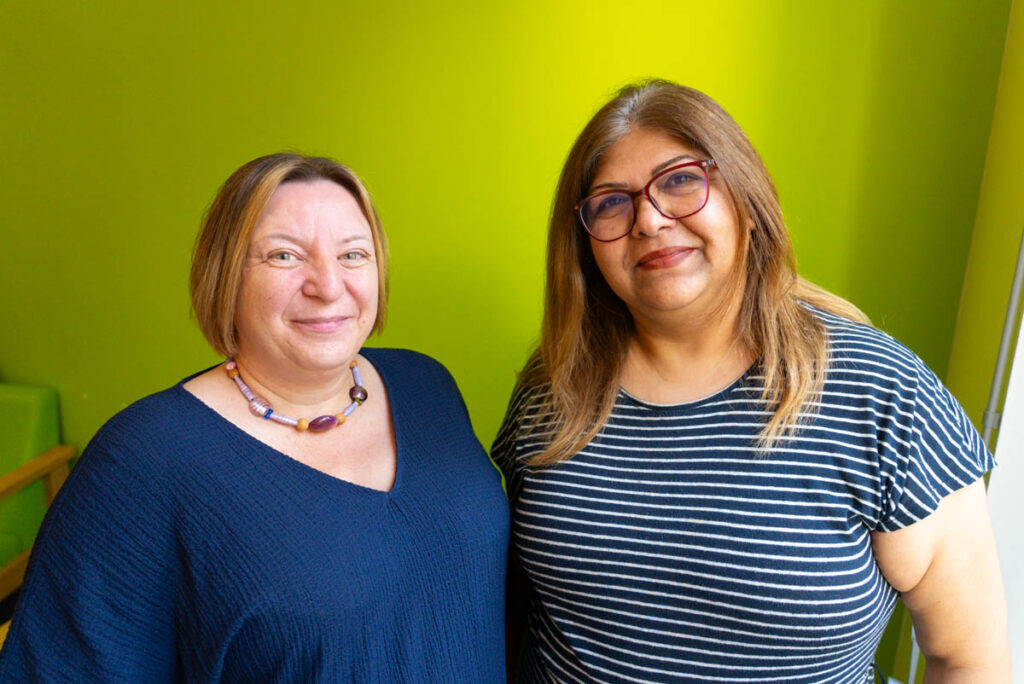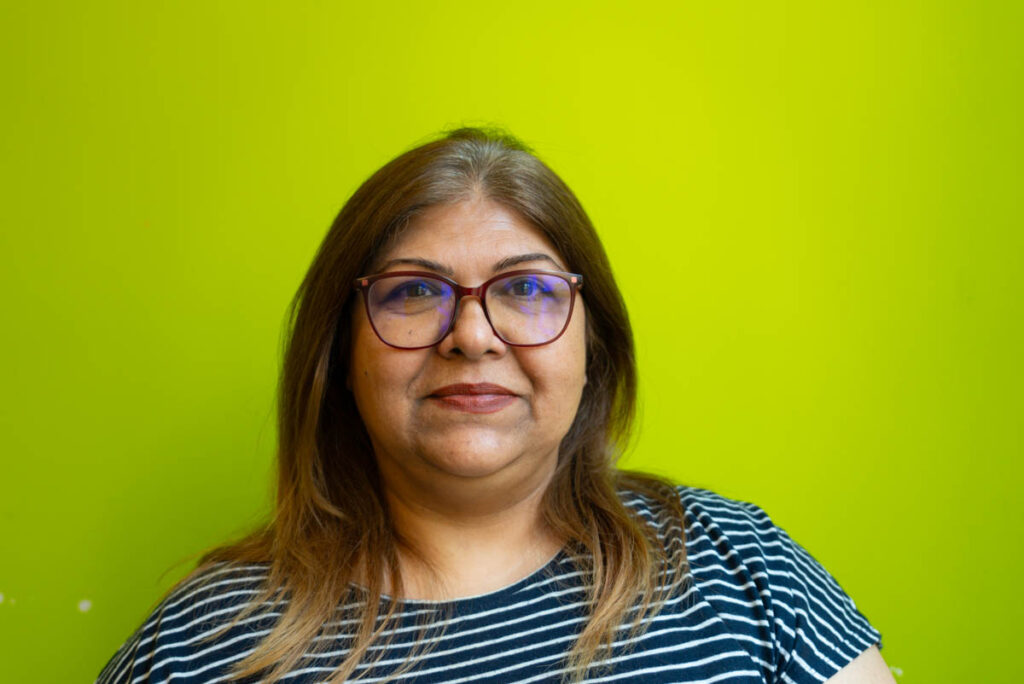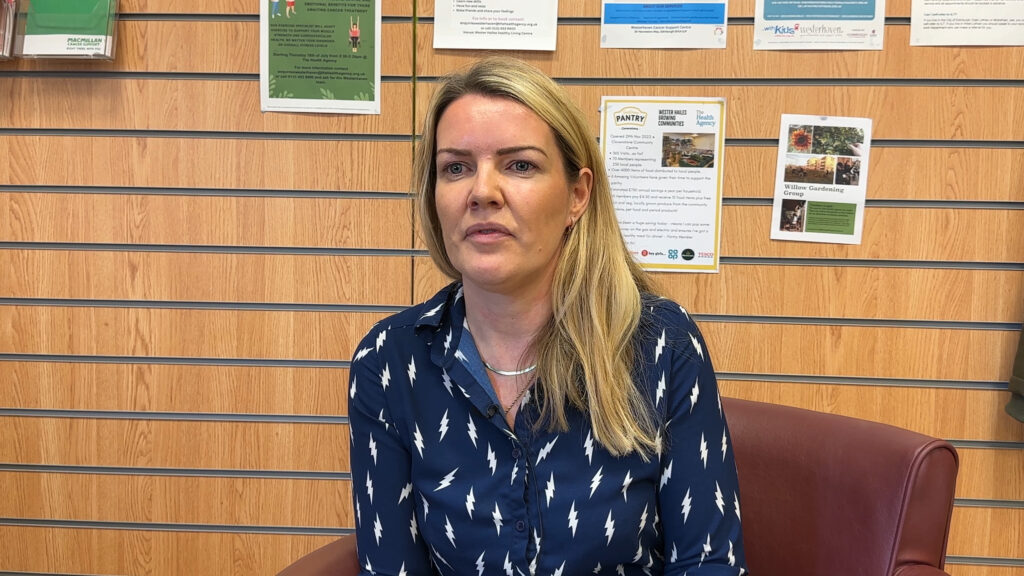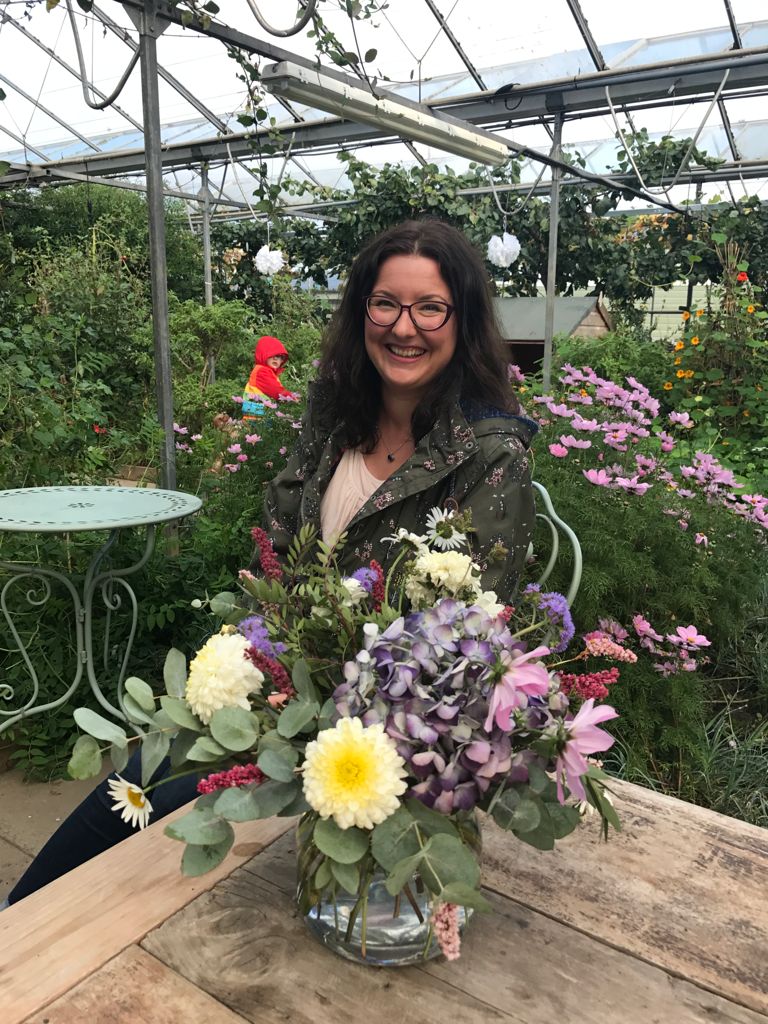Talking to The Health Agency amid a threat to their funding
In the face of a threat of immediate cuts to their core funding many third sector organisations mobilised to make written and verbal protests to the November meeting of the Edinburgh Integration Joint Board (EIJB).
The meeting was a lively one when a great deal of time was devoted to hearing the many deputations which had requested to speak about the impacts of the proposed £4.5 million cuts on third sector work. This led to one of the members of the board, Peter Knight, saying that it had been very informative. He admitted he had learned things he had not known during the three years he has been on the board.
The next meeting of the Edinburgh Integration Joint Board (EIJB) will be on 17 December 2024 when the members of the board will consider what was agreed at the November meeting.
Part of the agreement was “to hold discussions as soon as possible with NHS Lothian, the Council, and third sector organisations to consider alternative proposals for the long-term future of third-sector funding, mindful of the current financial position across the Scottish public sector and the need to meet EIJB objectives”.
60+ organisations
There are 60+ organisations which receive core funding from the EIJB. All deputations explained that the EIJB money is the money on which they can depend and then make applications on the basis of it for additional funding for specific projects. Core funding pays for rent and keeping the lights on, but without it then the charities and third sector bodies will be stuck without enough money to keep going. If the £4.5 million cut had been made on 1 November then at least 100 people in paid positions could have been made redundant, along with around 3,000 volunteers involved in the third sector.
The Health Agency
When we met The Health Agency in Wester Hailes this week they have not yet had the opportunity to have any discussions with the EIJB but they understand that there are possibly conversations being held “higher up”. This is regarded as a pioneering way of delivering healthcare. GPs, dentists as well as the third sector are all housed in one building which allows everyone to work in tandem. The main message is that by using alternatives such as yoga, or walking or gardening groups people do not need to see GPs so often. Some patients avoid the need to take anti-depressants, and they stay well for longer.
In an area where the life expectancy is around 60 – 15 years younger than other areas in the city, this is crucial.
The patients
We spoke to several people who had come to the Health Agency to use their services. Some did not want to speak on camera, but were happy to share their stories.
Curtis is a young man who has been coming to the Health Agency for about a year. He said: “I found the community that is a part of is ideal. It is getting people on their feet and understand how to manage their body. I suffer from a mental health disorder and when I first came I wasn’t confident. It is different now. It is people like Dom who have helped me.
“I reached out to them for help, and for me they have tried to make everything possible happen. I did the guided gym group for about 10 weeks and I learned about the machines and how to use them. I also do walking football. I have experience playing football.
“There are few people here but even with those few people their scope is huge. I have changed for sure in the last year. One of the biggest factors is being able to be around people and the reason for that was the gym and football. This is like taking me out of my comfort zone in the best way possible and make it become my comfort zone.”
William is retired and needs a new knee because of osteoarthritis. Just over two months ago he was in his own words “literally housebound”. On meeting him at The Health Agency he certainly did not look like someone who could not manage to get over the doorstep. He said: “This is the difference that the Health Agency has made to me. I was referred by my doctor as I have been on the waiting list for a new knee for about two years now. Last year I had an operation on my elbow so that I can have complete movement. During Covid my mental health was badly affected, and I was advised to stop smoking and drinking – which I did, but I ballooned in weight.
“Just about three months ago I was told I was on the threshold of becoming diabetic and that was a massive scare. Now I’m in the gym three times a week. They got me out of the house. I had had to retire from work because of my condition – I used to do landscaping work. This is helping me get my buzz back on again. My goal is to reach my target weight to get my operation. In 12 weeks I have lost just over a stone. All that I have learned here has led me to better ways of eating and my confidence has been boosted. I have just completed a six week kayaking course.
“I hadn’t done that for years since I was in the Army. I joined a class at Meggetland and I completed the course.”
Simin is Iranian. She told us that for the last 20 years she has suffered from depression, but since she has come to the Health Agency she feels “much better”.
She said: “I was on tablets, but I couldn’t leave my house. Last year I was diagnosed with diabetes and then I got referred to The Health Agency. They helped me to reverse my diabetes and introduced me to the walking group. At first my husband had to bring me here to meet with them, now I can get the bus here on my own. The group has helped me to come out of my shell. After joining this group and getting help from Kim and Dom I feel so much better.”
Amanda and Bahar


Amanda has Long Covid and she said she has benefited hugely from the services at Westerhaven, a part of The Health Agency, during the last two years. She said: “I was referred by my GP. I came here to have a massage from one of the counsellors, Linda. That was the start and this has massively helped me.
“When I first came here I struggled to walk from the front door, and I wouldn’t be able to talk without taking lots of breaths. Mentally it was a struggle as I wasn’t able to work. I used to be a dental nurse. The government had said they would bring in Long Covid clinics and there was nothing at at all.”

Bahar has had cancer treatment. She said: “I was diagnosed with breast cancer in 2021 and I also have fibromyalgia. I don’t have many family members here and it was a friend who told me about Westerhaven. I used to work as a teaching assistant at Wester Hailes Education Centre, but I had not heard about it before. From the first minute the questions they asked me on the phone were very detailed and they started referring me to the right therapies. I had started losing my mobility which I had never expected. The brilliant thing about this place is that they are extremely professional and friendly. We have a relationship with each other now.
“Everything happens in the same place which is not very usual. This has helped me enormously – just to get dressed and get out of the house. The chair yoga and the art classes are great for me. Talking about my specific needs during counselling has also been good for me. I had to get healthy and lose weight after my treatment. My livelihood and emotional and physical wellbeing depends greatly on Westerhaven.”
The staff
Kim Anderson is a qualified personal trainer, and she changed her own life around by losing a great deal of weight after having children by using the Couch to 5K programme. She is passionate about the project Positive Moves which she now runs. This incorporates physical activity and wellbeing along with learning about food and eating – the ideal complement to everything else that goes on in the Health Agency. She explained that patients with Type 2 diabetes can be referred to her and it involves looking at what healthy eating looks like along with exercise.
She said: “We run a six week course highlighting empty calories, hidden sugars, how to read food labels.
“My project also includes physical activity. We have people referred to us by GPs who only have ten minutes for an appointment. All of my initial appointments are an hour long. We need to hear all of it to peel back the layers and work out what is really needed. It may be a sore knew but there could be a need for counselling in amongst that.
“We run a pre-hab clinic along with the cancer clinic, Westerhaven, we run supported gym visits, taking people to the gym at Edinburgh Napier University in Sighthill. This can be for any reason from needing to lose weight to social isolation. We give them a one-to-one induction class first of all. Then they go to the gym for six to eight weeks and have the opportunity to join the gym at a reduced rate – £25 for three months – after that. We find that people join but they often go along at the same time as they have started to enjoy the social side as well. We have a walking group, a walking football group and three chair based exercise groups.
“In association with my colleague Stacey from Tasting Change we have funding to run a four week diabetes course – two weeks cooking and the other time for education about diabetes. We may be able to help people get the Joe Wicks app for free. I have grown the service and now have three sessional workers including Dom. We are a victim of our own success I guess.”
Rossi Craig

Rossi Craig, the Acting CEO of the Health Agency, said that she was at her desk in the middle of making many applications for new grant funding. (She is not letting the grass grow under her feet.) She explained what a normal day is like at The Health Agency. She said:”We have a community lunch every Thursday and everyone is welcome. We have a pre-hab yoga class which Dom leads. The idea is to maximise good health before cancer treatment.
“About 45% of our funding comes from the IJB – about £170,000 a year. This is our core funding to help stabilise us and allow us to more than double our funding by leveraging in other grant funding on top. Without that core fund we would struggle to carry on. It pays for our operational costs.
“This is a one stop shop for local community members to come to. We have everything from children’s services to drugs and alcohol counselling. During Covid we provided meals and check in calls. WE can adapt very quickly and without us there will not be the response the next time a health crisis happens.”
“We are always willing to be creative but we have to be careful that we don’t just run everything on a shoestring.
“I think the EIJB needs to look a bit closer. They didn’t have time to do that before. I understand that, but they really need to look at the impact of the services that we do provide – also what will happen if we are not here.”
Dr Nora Murray-Cavanagh

Dr Nora Murray-Cavanagh is a GP in the Wester Hailes Practice. She has been a doctor in the Wester Hailes Healthy Living Centre since it opened in 2013. She said: “The building itself is a flagship project around the importance of co-location of services. I think the first thing to say is that we all operate under great financial pressures across the piece, so it is not just the EIJB that are in that position.
“We have a fixed budget, so if something happened to the Health Agency then there would be needs that are not met. All of use who work in health and social care and in the third sector always think if we can just do that little bit more, if we can see that one more patient, but you cannot meet all of that demand. So we really value and depend on the services offered here.
“We can really pose the question about how these services should be funded – and if that is not possible within current structures then we need to know what a new structure might look like. In our day to day work as GPs we think about how organic and fluid and self-sustaining the relationship is between us and The Health Agency. We work really collaboratively, very closely together on a number of projects. We also know there are many patients who never make their way to us because of support from The Health Agency.”
Dr Anna Noble
Dr Anna Noble is also a GP in the same practice which has around 10 doctors, although not all are full time. She said: “If the Health Agency was to close then I couldn’t do what I do. There is absolutely no doubt about that. We have a population here that suffers from ill health a lot earlier in their lives. Our life expectancy is early sixties and in Tanzania it is 62. I drive from my home in the leafy suburb nearby. We need to be really aware that this is how close these health inequalities are. We know that from a cold financial point of view that things we have been working on on a lot – such as diabetes – will take an awful lot of money from the NHS within the next few years.
“These things are getting worse. For example we now have to prescribe contraception for people with diabetes which is not something we thought about before. Patients used to be diagnosed at 55, but now we see people being diagnosed in their twenties. It is not drugs and alcohol, it is deprivation. Poverty makes you sick.
“The stress comes from things that others take for granted – like where you will live next year, the job you will have next year. I dont need to say that the NHS is stretched to the limits. The way that NHS deals with that is to deal with patients as one prescription per year, one blood test a year. What we really need to do is help these patients help themselves.
“If you go to the food bank what does that mean for diabetics? If you only have a microwave then you cannot always cook the broccoli we are recommending. That is where The Health Agency comes in. We can refer patients there for ongoing support. And we know it works.
“I have contact with around 50-60 patients on an on call day. Appointment times are short and I would like to know my patients better. In areas of deprivation ongoing care is the key.”
Grass Roots Remedies

Jillian Faichney is the clinic dispenser, product maker and course administrator at Grass Roots Remedies. This involves people in gardening, growing herbs which are then used in producing free herbal remedies. This is a co-op which has its base at The Health Agency. They provide supportive treatment of chronic illness of all kinds, all tailored to the individual. It is the kind of add on service which is encouraged, and which the building fosters. An initial constulation lasts about an hour. Read more about their work here.
Next steps
By December the Chief Officer, Pat Togher will have moved to his new position in Glasgow. His position in Edinburgh – which he only took up in November 2023, is currently being advertised here at an annual salary of £180,443 per annum.
The board will meet then to discuss how to fill the funding gap of many millions which they have – and hopefully will have some ideas about how to engage with the third sector without cutting their budgets.
When they are produced the papers for the meeting will be at this link here.
The members of the EIJB are as follows:
- Chair Katharina Kasper
- Vice-Chair Cllr Tim Pogson (Labour)
- Chief Officer (vacant)
- Service User Representative Eugene Mullan
- Member Philip Allenby
- Allied Healthcare Professional Representative Hannah Cairns
- Member Cllr Alan Beal (Liberal Democrat)
- Member Elizabeth Gordon
- Member George Gordon
- Staffside Representation City of Edinburgh Council Ben Owen
- Service User Representative David Belfall
- Chief Social Work Officer Rose Howley
- Member Peter Knight
- Chief Nurse Jacqui Macrae
- Service User Representative Allister McKillop
- Member Cllr Alys Mumford
- Member Cllr Max Mitchell
- Member Cllr Vicky Nicolson
- Chief Finance Officer Moira Pringle
- Registered medical practitioner Emma Reynish
- Staffside representation NHS Lothian Helen Fitzgerald
- Dr Robin Balfour
- Rose Howley
- Matt Kennedy
Registers of Interest
This part of the EIJB information is empty in the case of the Chair Katharina Kasper, Cllr Alys Mumford, Matt Kennedy, Rose Howley and Emma Reynish. In the case of George Gordon it seems to be out of date as it was completed in May 2022, by which time the former SNP councillor was no longer an elected member as stated.
